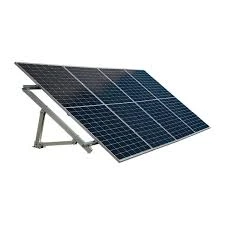Top Hybrid Inverter Manufacturers for Efficient Energy Solutions and Sustainable Power Systems
The Rise of Hybrid Inverter Manufacturers Powering a Sustainable Future
In recent years, the focus on renewable energy solutions has intensified, influencing many sectors, including the energy market. One of the key players in this shift towards a sustainable future is the hybrid inverter manufacturer. Hybrid inverters, which combine the functionalities of solar inverters with battery storage systems, are crucial in optimizing energy consumption, reducing reliance on fossil fuels, and enhancing the efficiency of renewable energy systems. This article explores the emergence of hybrid inverter manufacturers, their benefits, and their role in the transition to cleaner energy.
What is a Hybrid Inverter?
A hybrid inverter is an advanced power management device that converts direct current (DC) electricity generated from solar panels into alternating current (AC) electricity, which is used in homes and businesses. Unlike traditional inverters, hybrid inverters can also manage electricity storage systems, allowing excess energy produced during sunny days to be stored in batteries for use during the night or cloudy days. This capability not only maximizes the use of renewable energy but also provides energy security and reliability.
The Importance of Hybrid Inverters
As global energy demands continue to rise and the impacts of climate change become more pronounced, the importance of hybrid inverters cannot be overstated. These devices provide several advantages
1. Energy Independence By storing excess solar energy, homeowners and businesses can significantly reduce their dependence on the grid. This is especially valuable in regions with unstable power supplies or frequent outages.
2. Cost Savings Hybrid inverters can lead to substantial savings on electricity bills. By using stored energy during peak hours when rates are typically higher, users can avoid high costs associated with grid electricity.
3. Environmental Impact Hybrid inverters facilitate a more extensive integration of renewable energy sources, helping to decrease carbon footprints. As more consumers opt for solar power coupled with battery storage, the reliance on fossil fuels diminishes, making way for a cleaner environment.
4. Grid Support Hybrid inverters can communicate with the electricity grid, helping to stabilize it during peak demand times. This improves overall grid reliability and efficiency, contributing to a more resilient energy system.
hybrid inverter manufacturer

The Market Landscape
The market for hybrid inverters has grown remarkably, driven by increasing consumer awareness and government incentives promoting renewable energy solutions. Many companies worldwide are stepping up as hybrid inverter manufacturers, ranging from established corporations to emerging startups. These manufacturers are innovating rapidly, producing diverse models tailored to different residential, commercial, and industrial applications.
Key players in the market utilize cutting-edge technologies to enhance the performance, reliability, and user experience of hybrid inverters. Features such as remote monitoring, smart energy management, and integration with electric vehicles are becoming increasingly common, appealing to a tech-savvy consumer base.
Challenges Ahead
Despite the growing popularity of hybrid inverters, the industry faces several challenges. First and foremost is the need for standardization across different models and technologies. With various manufacturers developing their systems, consumers may find it difficult to choose the best solution for their needs.
Additionally, while the initial investment in hybrid inverter technology can be high, ongoing cost reductions in solar panel and battery technology are expected. As these costs decrease, hybrid inverters will become more accessible, allowing broader adoption.
Future Outlook
The future of hybrid inverter manufacturers looks promising. As governments worldwide commit to ambitious climate goals, the demand for renewable energy solutions, including hybrid inverters, is expected to soar. Innovations in energy storage technology, artificial intelligence, and machine learning will further enhance the capabilities of hybrid inverters, making them an integral component of smart energy systems.
In conclusion, hybrid inverter manufacturers are at the forefront of the renewable energy revolution, offering essential solutions for a sustainable future. By harnessing the power of the sun while providing reliable energy storage, these companies are not only helping individuals and businesses save on energy costs but are also contributing to the larger goal of reducing global carbon emissions. As the market continues to evolve, we can anticipate a transformative impact on how energy is produced, consumed, and managed across the globe.
-
String Solar Inverter: The High-Efficiency Solution for Smart Solar EnergyNewsJul.14,2025
-
Revolutionizing Rooftop Energy with the Power of the Micro Solar InverterNewsJul.14,2025
-
Power Independence with Smart Off Grid Solar Inverter SolutionsNewsJul.14,2025
-
On Grid Solar Inverter: Powering the Future with Smart Grid IntegrationNewsJul.14,2025
-
Monocrystalline Solar Panels: High-Efficiency Power for the Future of Clean EnergyNewsJul.14,2025
-
Bifacial Solar Panel: A Smarter Investment for Next-Generation Energy SystemsNewsJul.14,2025







